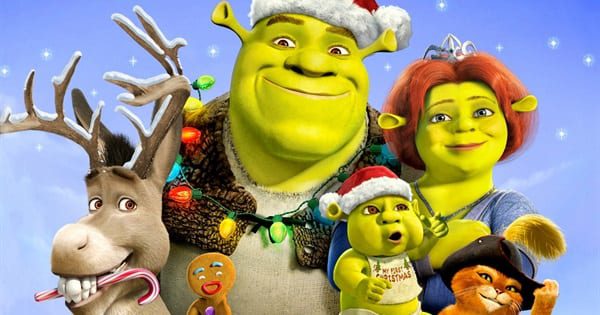 I am as crusty as any Christmas traditionalist, I suppose, when it comes to the co-opting of the “true meaning of Christmas” by the so-called secular world. It annoys me that the greeting of “Merry Christmas” has been watered down so often into a more benign “Happy Holidays” wish.
I am as crusty as any Christmas traditionalist, I suppose, when it comes to the co-opting of the “true meaning of Christmas” by the so-called secular world. It annoys me that the greeting of “Merry Christmas” has been watered down so often into a more benign “Happy Holidays” wish.
Never mind that the root word of “holiday” comes from “holy day,” thus still smacking of religiosity, but we’ll leave that for another time.
My annoyance reached its peak recently when my son, Mattias, was watching one of scores of holiday specials on television called “Shrek the Halls.” Though I feared an opportunistic, pandering string of fart and booger jokes, it actually was pretty clever, and included the original stars’ voices from the “Shrek” trilogy.
However, just as I was drawn in by the jolly old ogre, they slapped me with a profound heresy. They pronounced, rather boldly I might add, that the true meaning of Christmas is about family and sharing.
Huh?
It’s not as if I expected Donkey or Shrek to pronounce that the true meaning of Christmas is to set time aside to remember the birth of Baby Jesus; that would have knocked me right out of my chair, in fact. However, if you’re not really going to talk about the “true meaning,” why lay any claim to it, right?
Hasn’t ever stopped us church folk, has it?
We’ll assume most people know by now that we co-opted Dec. 25 from pagan traditions in the first place, and that Jesus wasn’t likely born this time of year at all. But the more I look around, the more I realize how much we do without any real understanding of why.
We all know the song about the 12 days of Christmas, but how many of us celebrate a full 12 days? If so, when do the 12 days start? Is Dec. 25 the beginning or the end of the week-and-a-half marathon?
It turns out that hardly anyone can agree, not that this should come as a surprise to anyone familiar with church politics. Generally, the 12 days are considered to be the period in the liturgical year before the Epiphany when the Magi traveled to bring gifts to Jesus. Historically, it’s more likely that this happened over a period of years, but who needs to be bogged down with details?
And whoever decided there were three Magi? Good luck finding that in scripture. But I digress.
For some churches, Christmas’ 12 days don’t even begin until the Dec. 26. Some Eastern Orthodox traditions don’t observe Christmas until Jan. 7. We could go on about why we put up and decorate trees, trade gifts, or why some us seem to think Christmas is permission to abuse our bodies with sweets, alcohol and late-night parties.
But the heart of the matter is best addressed in a quote from Dennis Bratcher, who writes the following as a theologian with the CRI/Voice Institute, a global and ecumenical ministry dedicated to providing “biblical and theological resources for growing Christians.”
“Many of the symbols of Christianity were not originally religious,” says Bratcher, “including even the present date of Christmas, but were appropriated from contemporary culture by the Christian faith as vehicles of worship and proclamation. Perhaps, when all is said and done, historical accuracy is not really the point.”
Amen.
We may not agree with everything that others do in the name of Christmas, but we can rest assured that, somewhere out there, more than a handful of people object to the way we handle the holiday as well. We’re best served when we take the time to discern our own “true meaning,” while being careful never to lay exclusive claim to such.
Now, if you’ll excuse me, it’s time for my divinely mandated daily dose of fruitcake and rum balls.
Christian Piatt is the author of “MySpace to Sacred Space” and “Lost: A Search for Meaning.” For more information, visit www.christianpiatt.com.











